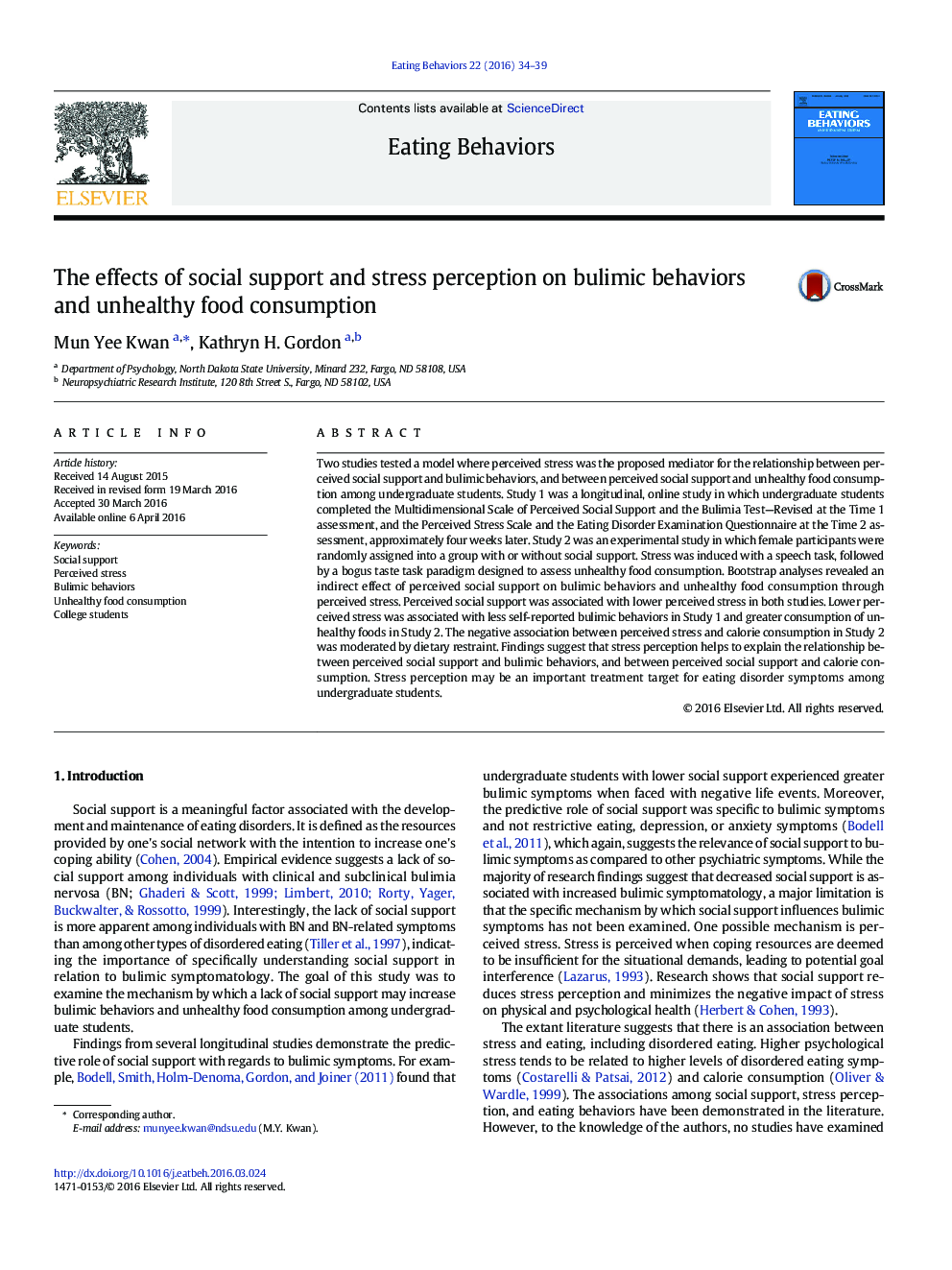| Article ID | Journal | Published Year | Pages | File Type |
|---|---|---|---|---|
| 906186 | Eating Behaviors | 2016 | 6 Pages |
•We examined the effect of social support on bulimic behaviors.•We examined the effect of social support on unhealthy food consumption.•Stress perception mediated these relationships.
Two studies tested a model where perceived stress was the proposed mediator for the relationship between perceived social support and bulimic behaviors, and between perceived social support and unhealthy food consumption among undergraduate students. Study 1 was a longitudinal, online study in which undergraduate students completed the Multidimensional Scale of Perceived Social Support and the Bulimia Test—Revised at the Time 1 assessment, and the Perceived Stress Scale and the Eating Disorder Examination Questionnaire at the Time 2 assessment, approximately four weeks later. Study 2 was an experimental study in which female participants were randomly assigned into a group with or without social support. Stress was induced with a speech task, followed by a bogus taste task paradigm designed to assess unhealthy food consumption. Bootstrap analyses revealed an indirect effect of perceived social support on bulimic behaviors and unhealthy food consumption through perceived stress. Perceived social support was associated with lower perceived stress in both studies. Lower perceived stress was associated with less self-reported bulimic behaviors in Study 1 and greater consumption of unhealthy foods in Study 2. The negative association between perceived stress and calorie consumption in Study 2 was moderated by dietary restraint. Findings suggest that stress perception helps to explain the relationship between perceived social support and bulimic behaviors, and between perceived social support and calorie consumption. Stress perception may be an important treatment target for eating disorder symptoms among undergraduate students.
